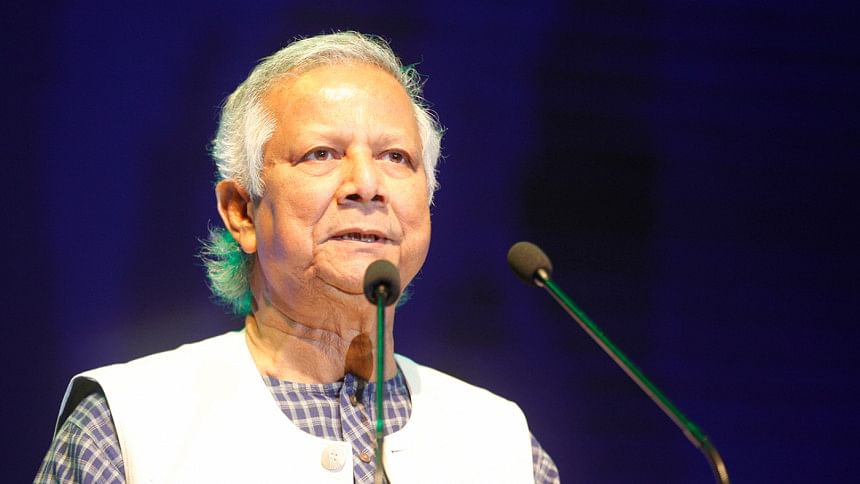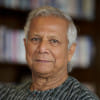Events of January 10 and 11, 2007

In a recent article in the Eid Magazine of the daily Prothom Alo, titled 1/11, written by Mohiuddin Ahmad, it was mentioned in the interviews with General Moin U Ahmed and Brigadier Bari that I did not agree to the proposal of the army to become the head of the caretaker government because it would only last for two years, which was not long enough to generate my interest in the proposal. They implied that because of my refusal to accept the top position within a two-year framework, they had to look for someone else.
The reason given for me not accepting the army's offer is totally fictitious. A non-political civilian has to be very naive to ask the army to give assurances to keep him as the head of the government for more than two years, or even for six months.
Let me narrate the events involving me that took place, prior to the formation of the caretaker government of Fakhruddin Ahmed.
This is how the day of January 10, 2007 went for me. I got a phone call from the Chief of Army at my office at around 5:30 pm. I was in my office talking to two of my senior colleagues. My phone rang. It was the Army Chief. We did not know each other. He introduced himself and went straight to the subject. He said, the army has decided to put up a new caretaker government to run the country to save the country from chaos. And they have decided to appoint me as the head of the caretaker government. He invited me to get ready to proceed with the formalities. I thanked him for his kind proposal but added immediately that they had better look for someone else because I did not wish to accept the proposal. It was clear that he was not ready for this reply. Perhaps he was expecting an enthusiastic and positive response. He repeated his proposition, thinking that I may not have understood what he proposed. I again repeated my refusal and suggested that he can move on to their next candidate for the position. He said they didn't have any second choice; the whole plan was worked out with me as the head of the government. I apologised for disappointing them but made clear that I had no intention to lead the caretaker government. He perhaps realised that changing my mind was not going to be easy. He said he'll ask his colleagues to talk to me in further details so that they can clarify everything for me. I told him that I would be happy to talk to his colleagues but that this would not change my mind.
The conversation ended there. It took me a few minutes to realise that this had been a real conversation, the person on the other side of the phone was the Chief of Army and he was offering for me the responsibility of leading the government! After recovering from the suddenness of the event, I took some time to explain to my colleagues who were still sitting in front of me and listening to the conversation from my side of the phone, what had just happened. I gave them the details about the other half of the conversation. They were stunned. They could not believe that I had responded negatively to an offer which others would grab at any time. I told them that I am absolutely sure that I have done the right thing. They were puzzled and unhappy.
A few minutes later I got another call at my office. Major General Masud wanted to come and see me at my house. Since I had no way to say "no", I agreed and suggested that he should come to my house at 8:00 pm.
General Masud, along with Brigadier Amin and half a dozen jawans came to my apartment located within the Grameen Bank complex. I welcomed them and took them to a small room. They introduced themselves. They were very polite and explained what their mission was. The more I repeated my response, the more polite and insistent they became. In order to convince me, they gave me the details of their plan. I raised many questions to try to understand how they wished to proceed, without giving any impression that I was willing to reconsider my reply. I was hoping that once they realised that I was not going to change my mind, they would leave. They showed no signs of leaving. They said that their mission was to help me understand the gravity of the situation and agree to help them by accepting their offer. They shared all their concerns with me and their plans to address them. I kept saying that I could see their points very clearly but that they would have to proceed without me.
They presented their offer as an excellent opportunity for me to do whatever I was trying to accomplish for the poor from outside the government. That if I agreed, I could do all those things with the tremendous power of the government.
I kept repeating that I understood what they were saying. They kept pressing me to explain why I was so stubbornly opposed to taking the national leadership role. I told them that they don't have to wait for me to agree because there were many capable and committed people in the country who may be very happy to work with them. They asked for names. I gave names of some of my friends and people that I was familiar with. My close friend Dr Fakhruddin Ahmed was one of the names that I had mentioned.
They stayed for three hours trying to get me to change my mind. Finally, they decided to leave with one final message: "We will come back in the morning. Please consider all the aspects we discussed very carefully and discuss with your colleagues and friends. We hope we will get some good news from you in the morning." I told them I would definitely take this very seriously, but that they should not waste their time coming back again, because my response would be the same in the morning and so they had better use their time in finding the next candidate.
They thanked me and left quite unhappy, because their mission did not end with any success.
On January 11, I went to my office as usual. I was happy that they did not call me back in the morning. Around 10 am, my colleagues excitedly told me that they had just heard the news that my friend Dr Fakhruddin Ahmed would be sworn in as the head of the new caretaker government. I felt relieved.
It was mentioned in Mohiuddin Ahmad's article that I had attended the oath taking ceremony of the new caretaker government. That is not correct. I was neither expecting an invitation nor was I actually invited to the ceremony. I was happy with the news because it had signalled an end to the intensive pressure that I had to go through.
Muhammad Yunus is a Nobel Peace Prize winner; Founder, Grameen Bank and Chairman, Yunus Centre.

 For all latest news, follow The Daily Star's Google News channel.
For all latest news, follow The Daily Star's Google News channel. 



Comments